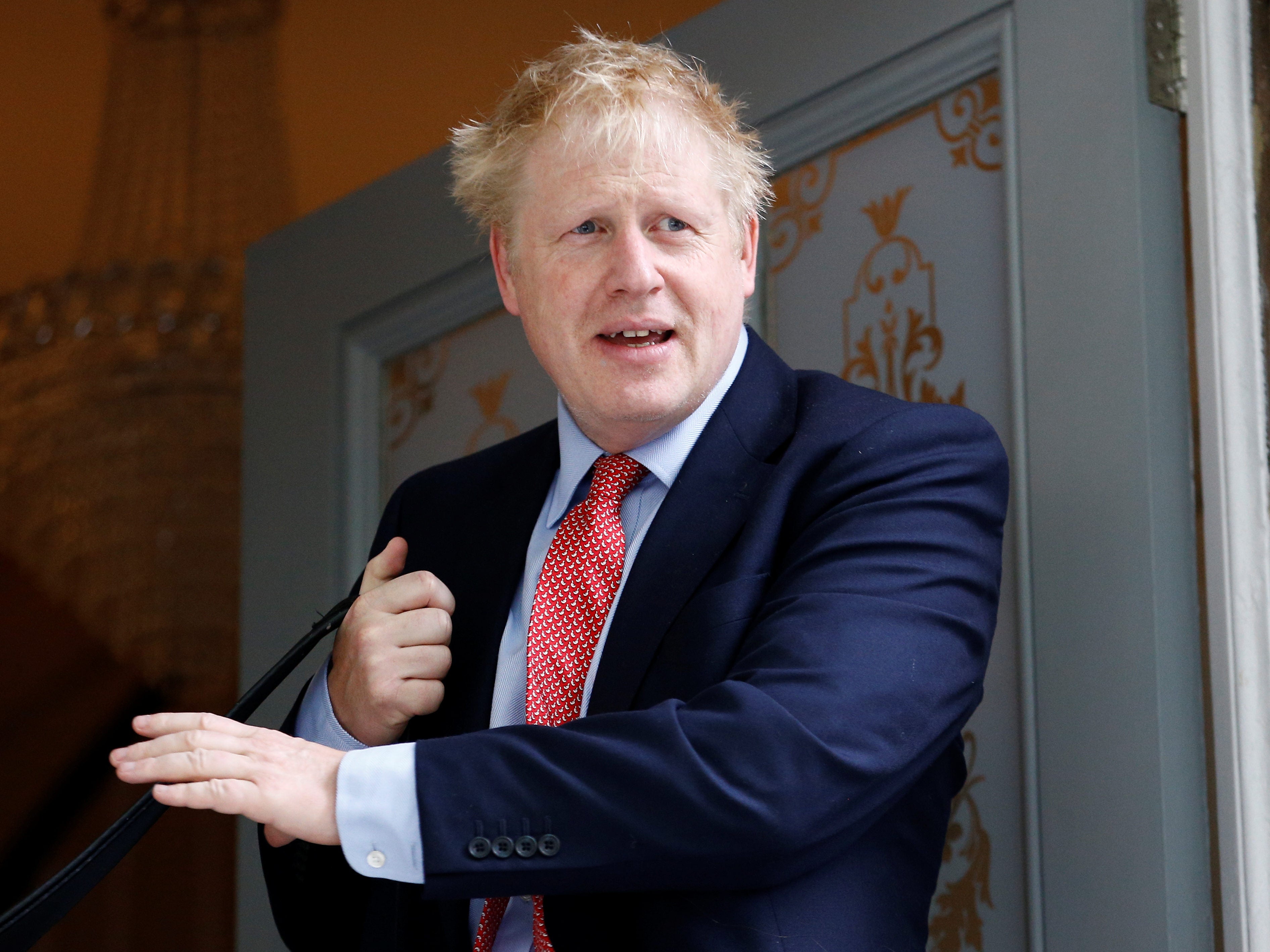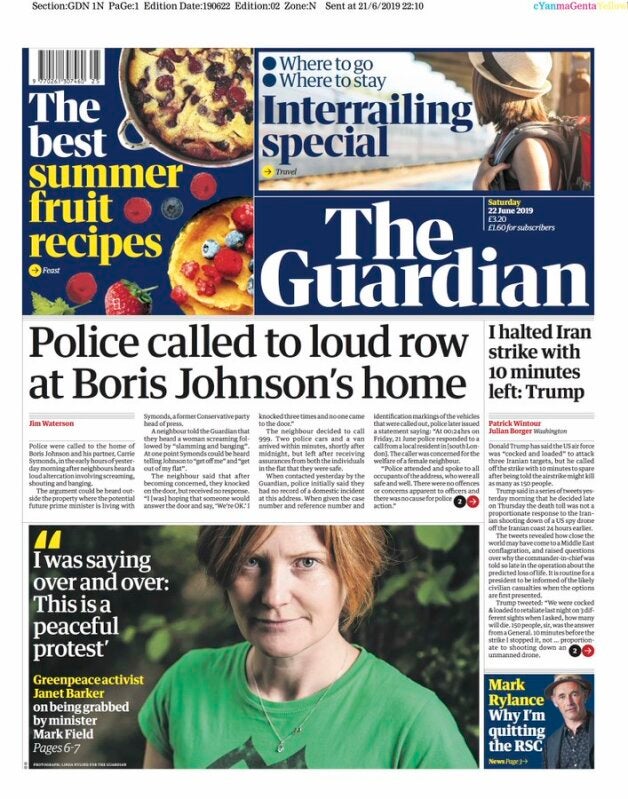
The Guardian had a “strong public interest” in reporting a domestic row between would-be Prime Minister Boris Johnson and his girlfriend, media lawyers have told Press Gazette.
Former BBC in-house lawyer Nicola Cain and Jon Oakley, a reputation team partner at law firm Simkins who represented Sir Cliff Richard in his privacy case against the BBC, both went on to suggest publication of the recording of the incident would have been harder to defend.
The Guardian first reported details of the row last Friday after it was passed a recording by neighbours who also called police to the home.
The newspaper said the argument between Johnson and his partner, Carrie Symonds, could be heard outside the property.
On the recording, Johnson can reportedly be heard refusing to leave Symonds’ flat and saying “get off my fucking laptop” before a crashing noise is heard.
Neighbours also told the Guardian that there was a “smashing sound of what sounded like plates” and “a couple of very loud screams”.

Guardian front page 22 June 2019. “Police called to loud row at Boris Johnson’s home.”
The newspaper and neighbours have since been criticised by other sections of the media, with rival titles such as the Sun and Spiked describing the story as an “invasion of Boris’s privacy” and “eavesdropping with no public interest justification”.
RPC law firm partner Nicola Cain, who has represented “Trump dossier” author Christopher Steele, told Press Gazette she felt the public interest case was stronger than the privacy argument in this circumstance.
“Obviously you’d normally expect in most circumstances that what goes on in your own home is your own private business, but that’s not the case here where you had something going on in someone’s home but it’s so loud and disruptive that it can be heard from outside that property.
“And it is at least reported to have caused the individuals concerned, the neighbours, such alarm that they felt it necessary to contact the police – being concerned that there was some sort of offence being committed.
“Now obviously we know clearly that police have subsequently decided that was not the case, but your reasonable expectation of privacy in those circumstances is always going to be significantly diminished.”
Cain added that it also made a “huge difference” that the case involved Johnson, a man angling to be the UK’s next Prime Minister.
“I do think there’s a strong public interest in reporting this,” she said.
Oakley agreed there was a “high degree of public interest” in the activities of Johnson, based on his current polling ahead of rival Jeremy Hunt, although he added this may not cover the tape itself.
He told Press Gazette: “I think the overall question is how far does the public interest in this conversation go? And to be honest with you, I think it’s a moot point.”
Oakley added: “I think there’s at least an argument that the tape itself ought to remain private and not released to the public, albeit when you are talking about someone that may about to become a Prime Minister, then there will always be a very high degree of public interest in what they’re going to do.”
The lawyer noted that “sometimes in cases like these, it may be that the public interest is served by the bare release of the information, but not necessarily of any recording”.
Cain pointed to a precedent-setting case in which supermodel Naomi Campbell won a privacy case against the Mirror over a story revealing her drug addiction published in 2001.
She said: “The House of Lords in the Naomi Campbell case said it would be okay to report the fact she was attending Narcotics Anonymous but they didn’t feel they ought to have published the picture of her doing it.”
Can went on to say she thought publishing the recording of the row would have been “very similar”.
The Guardian said it had no comment to make on its decision not to publish the recording of the row when approached by Press Gazette.
A Guardian News and Media spokesperson said: “Our reporting speaks for itself.”
Oakley recognised that there were also arguments that could be made against publication under Article 8 (privacy) of the European Convention on Human Rights.
“On the Article 8 side, we’ve got the fact that this took place in the private home. I’m not aware… that there’s any suggestion of any unlawful behaviour.
“Normally, even if the police were getting interested in things, then prior to the moment of arrest or charge there would be a reasonable expectation of privacy in the police investigation, albeit it appears in this case it hasn’t even got that far.”
Oakley added that the fact Symonds owned the flat was “another relevant factor”, adding that “public interest arguments don’t necessarily attach to her in the same way that they do to Boris Johnson”.
Tom Penn, the neighbour who reported the disturbance, has defended his decision to share details of the incident with the Guardian.
He told the newspaper: “Once clear that no-one was harmed, I contacted the Guardian, as I felt it was of important public interest.
“I believe it is reasonable for someone who is likely to become our next prime minister to be held accountable for all of their words, actions and behaviours.”
Picture: Reuters/Henry Nicholls
Email pged@pressgazette.co.uk to point out mistakes, provide story tips or send in a letter for publication on our "Letters Page" blog

